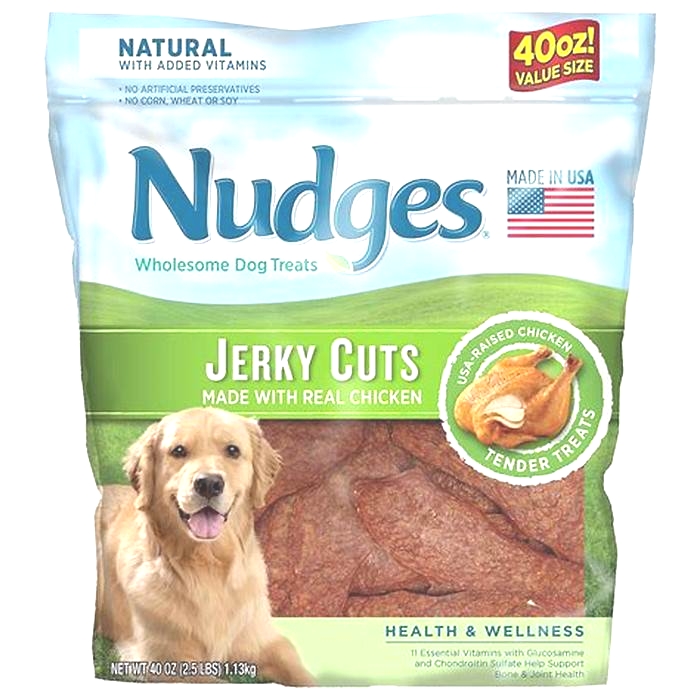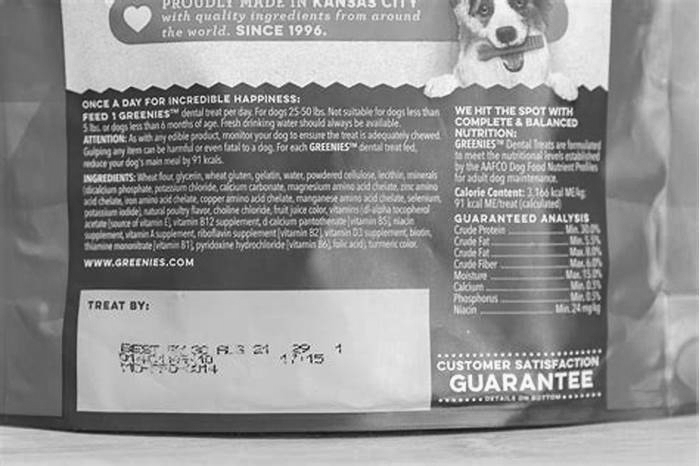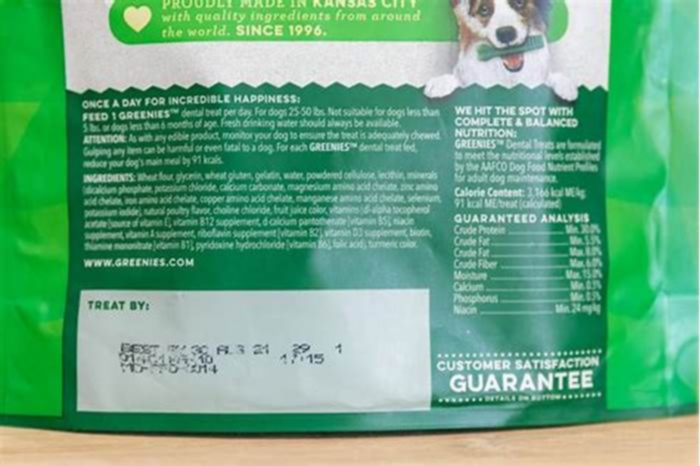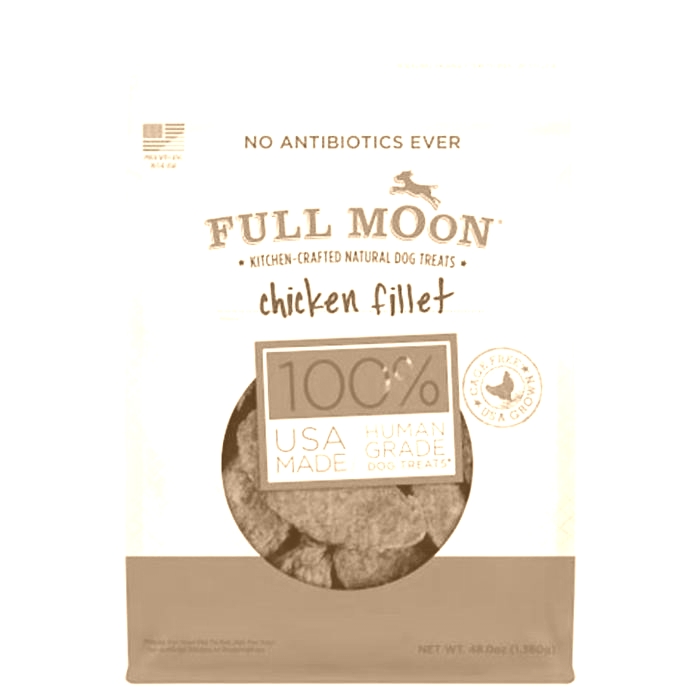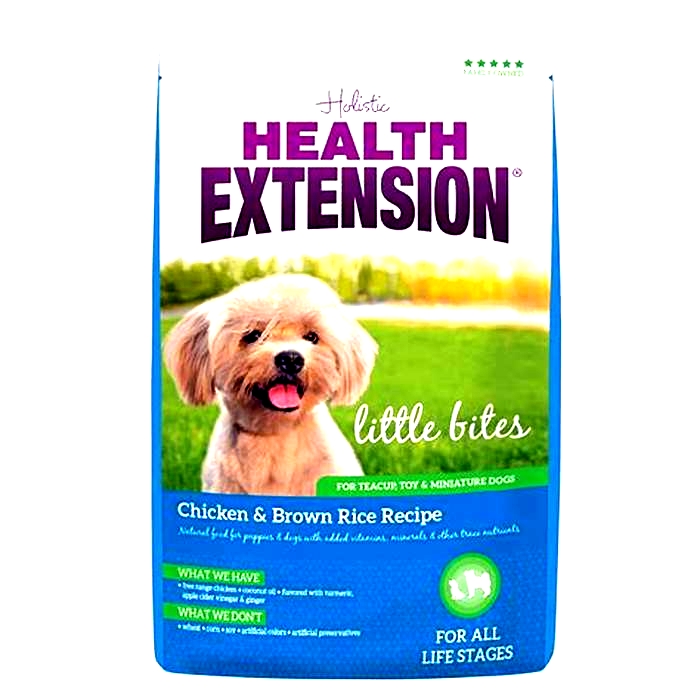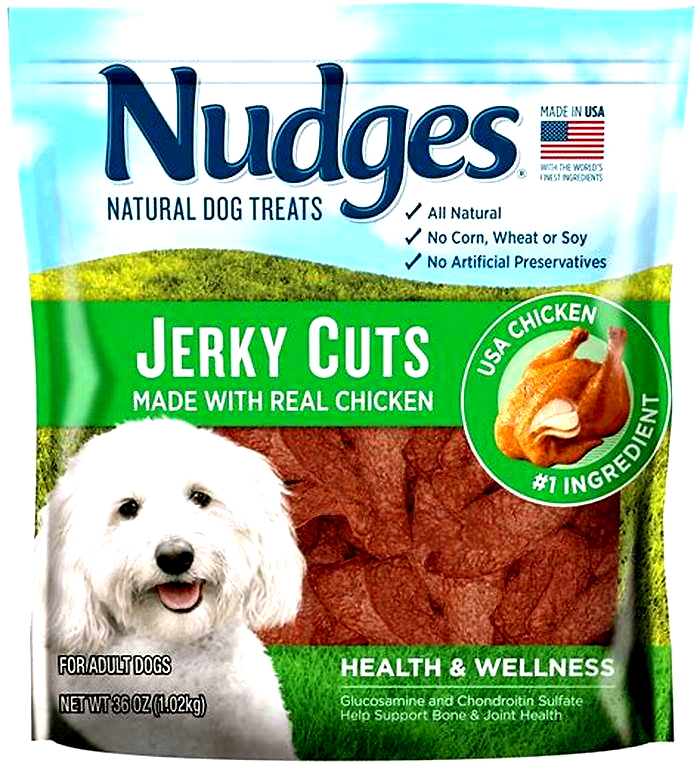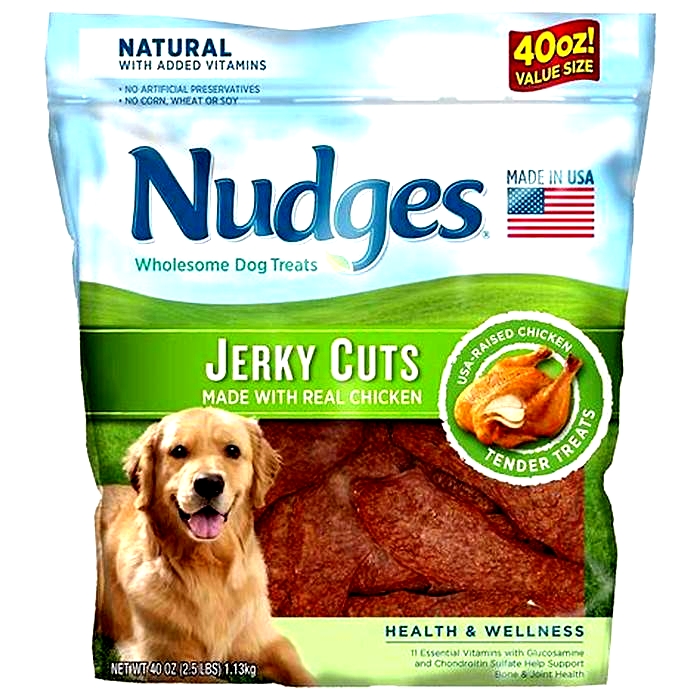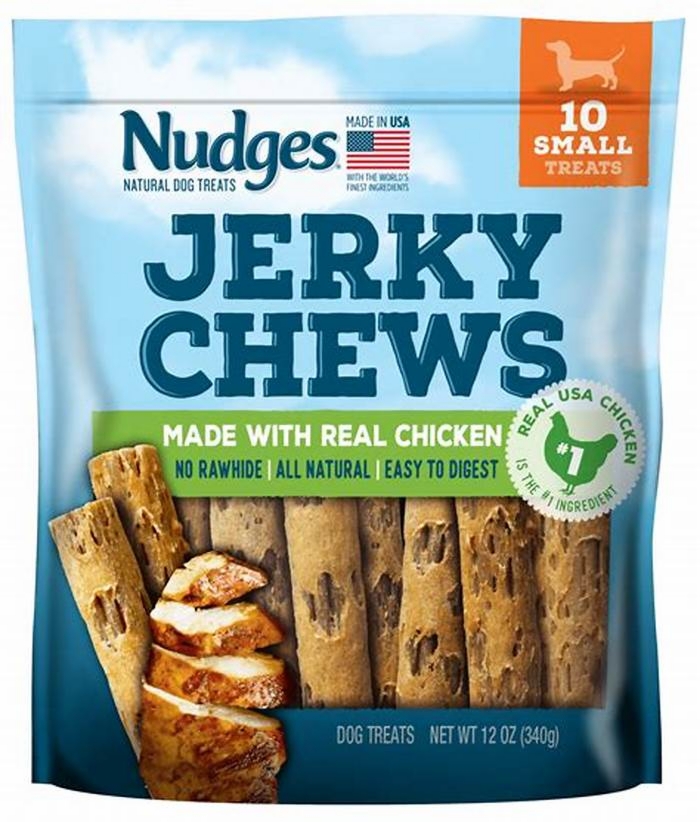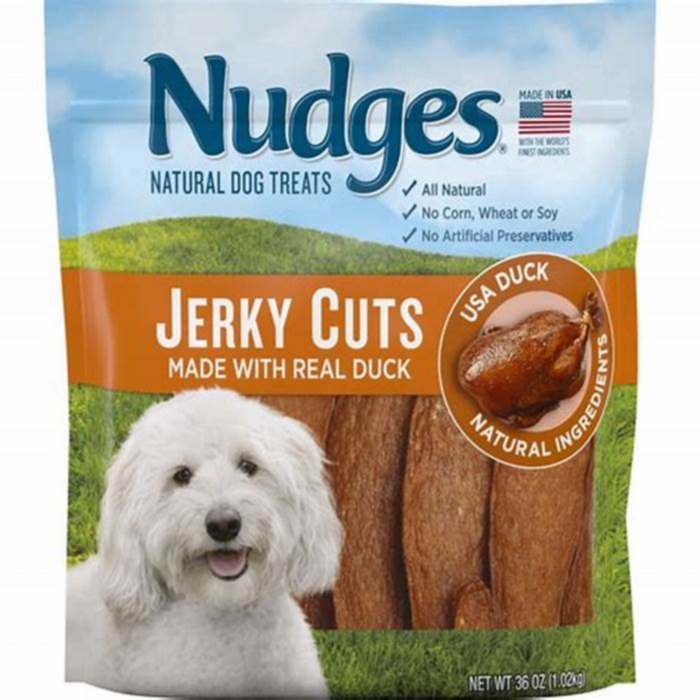can nudges dog treats cause diarrhea
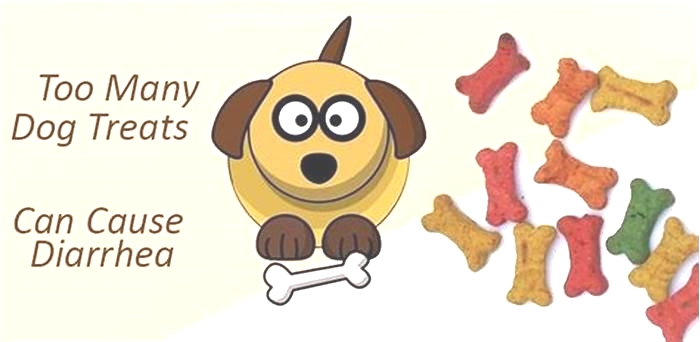
Too Many Dog Treats Can Cause Diarrhea
Dogs love nothing more than gobbling up a tasty treat. Treats let your furry friend know that they're being good and act as a scrumptious sign of love. Not only that, but treats are often bursting with enough flavor to keep your pooch's tail wagging well after they've swallowed it.
While most owners are more than willing to cave in after seeing those adorable puppy dog eyes, it's important to keep their snacking under control.
Like humans, dogs can experience unwanted side-effects after eating too many treats. One of the messiest and most uncomfortable is diarrhea.
The added flavors and unique ingredients used in many commercial dog treats can wreak havoc on your dog's digestive tract. In moderation, treats will pass through their system with no problem. However, when your dog consumes large quantities, they'll have to pay the price.
How Much Is Too Much?
When it comes to dog treats, there's no exact quantity you shouldn't exceed. There are a number of factors that you should consider when you're rewarding your pup. For one, it's important to remember that not all dog treats are made the same.
Manufacturers utilize unique formulas to create treats that are distinct. Some options may have a higher calorie count than others. The key to finding the right balance is to look at the treats as a smaller meal.
Instead of worrying about the number of treats you're giving your dog, worry about how those treats are affecting their daily caloric intake.
In total, treats should make up no more than 10% of their daily diet. It's a good idea to keep track of the treats you're giving them and modify the regular serving size of their main meals accordingly.
Take a look at the treat's nutritional value and use that information to determine how many treats you can supply without getting into dangerous territory. You should also consider your dog's size and breed.
Related Article: How to Clean Dog Diarrhea off Your Carpet
What Causes Diarrhea?
There are a number of reasons why an abundance of treats may cause your dog to experience diarrhea. Typically, diarrhea can be remedied quickly by simply by removing the irritant.
Unfortunately, most owners don't know what causes the stomach condition. Here are some common treat-related factors that can disrupt your pup's digestive system.
Fillers
As the name implies, fillers are designed to help your dog feel full and satisfied after eating a treat. They're often used to add bulk to dog foods without adding significant costs to the manufacturing process.
Unfortunately, some of the most popular filler ingredients aren't the best for your dog's stomach.
Fillers like corn, soy, and wheat are known to cause diarrhea. Dogs aren't equipped to process these ingredients. As a result, your dog's digestive system goes out of whack while they pass through.
Furthermore, fillers don't hold much nutritional value. They're basically wasted space that's used to fill the gap where more beneficial ingredients should be.
Because there aren't many nutrients to take advantage of, the body doesn't absorb the ingredients. Instead, they stay in the digestive tract until they're excreted.
Artificial Ingredients
You should always stick with natural ingredients when looking for dog treats. Cheaper treats often contain chemical additives that don't work well with your dog's body. These additives are used to enhance color, add flavor, and prolong the shelf life of the treat.
While consuming these treats every so often will pose no significant problem, eating too much may overload your dog's body. It'll have a difficult time processing the ingredients, which then results in uncomfortable diarrhea.
When you're shopping for treats, it's important to take a look at the ingredients list. If you find a long list of ingredients that you can't easily identify, the treat will likely cause issues.
There are many options on the market that are free of artificial ingredients and utilize natural alternatives to achieve the same effects.
Too Much Fat
Fat is a crucial nutrient that dogs need to stay energized and healthy. Healthy fats can add a boost of savory flavor to a treat and provide your pup with many cosmetic benefits. Treats often have a significant amount of fat in them. They're like junk food for the canine species.
All that added fat will turn your dog's normal stool into a runny mess and ultimately lead to weight gain. Even if it doesn't get to the point of causing diarrhea, you may notice that the fat causes your dog's poop to be slick and oily.
It's important to remember that your dog's standard kibble already has fat in its formula. Before you choose a dog treat, take note of the dog food's fat content and find a treat option that complements it.
Fat should only make up somewhere between 10% and 15% of your dog's diet each day.
A Sudden Change
One of the most basic and overlooked causes of diarrhea is a sudden change in what your dog's consuming. Dogs are creatures that get used to sticking to their normal routine.
They get accustomed to doing the same things and eating the same foods.
Have you ever switched kibble formulas and noticed that it upset your dog's stomach? The same principle applies to treats.
Usually, your pooch won't have problems consuming treats that contain wildly different ingredients. However, a sudden influx of new treats is a whole different story.
It throws off their system and makes it difficult to process the new ingredients. Their digestive tracts are very sensitive and will process the treat ineffectively, resulting in diarrhea.
What About Natural Treats?
There are many foods that you and your dog can share. Natural fruitsand vegetables are easy to come by and provide your pup with an unprocessed boost of nutrition.
While these treats are much healthier than commercial options, it's important to stick with the same rules.
Fruits and vegetables can actually have a bigger effect on your dog than manufactured treats. This is because dogs don't have the ability to filter out unsavory bits like humans do. Their stomachs may still react unfavorably regardless of how healthy the treat may seem.
Related: Worst Dog Treats 15 Bad Brands To Avoid
Over to You
All in all, treats should be a reward that's given out in moderation. While you may be tempted to provide a treat for every good thing your dog does, too much of a good thing can get pretty messy.
New foods should be introduced into your dog's diet slowly to avoid any sudden upsets. Stick to a strict calorie plan and pay close attention to what's going into your dog's body to keep them comfortable and free of stomach pains.
Can Dog Treats Cause Diarrhea
[ad_1]Dog treats are a popular way for pet owners to reward their furry friends for good behavior or simply to show them some love. However, what many pet owners may not realize is that some dog treats can actually cause diarrhea in their beloved pets. This can be a frustrating and messy situation for both the dog and the owner, so its important to understand the potential causes of this issue and how to avoid it.
There are several reasons why dog treats can cause diarrhea in dogs. One of the most common culprits is the ingredients used in the treats. Many commercial dog treats contain artificial colors, flavors, and preservatives that can be difficult for some dogs to digest. Additionally, some dogs may have food sensitivities or allergies to certain ingredients in the treats, which can lead to gastrointestinal upset.
Another factor to consider is the size and frequency of the treats given to the dog. If a dog is given too many treats in a short period of time, or if the treats are too large, it can overwhelm the dogs digestive system and lead to diarrhea. Its important for pet owners to be mindful of how many treats they are giving their dogs and to choose treats that are appropriate for the size and breed of their pet.
In addition to the ingredients and size of the treats, the overall quality of the treats can also play a role in causing diarrhea in dogs. Some lower-quality dog treats may be made with subpar ingredients or may not be properly processed, leading to digestive issues in dogs. Its important for pet owners to choose high-quality treats from reputable brands to help prevent this issue.
To delve deeper into this topic, lets take a look at seven interesting trends related to dog treats and diarrhea:
1. Trend: Increased awareness of food sensitivities in dogs
With more pet owners becoming aware of the importance of proper nutrition for their dogs, there has been a growing interest in identifying and addressing food sensitivities in dogs. This trend has led to a greater focus on the ingredients in dog treats and how they can impact a dogs digestive system.
Professional Veterinarian: Its crucial for pet owners to be aware of the potential for food sensitivities in their dogs. By choosing treats with high-quality, easily digestible ingredients, you can help prevent issues like diarrhea in your pet.
2. Trend: Rise in popularity of natural and organic dog treats
As pet owners seek out healthier options for their furry friends, there has been a surge in the popularity of natural and organic dog treats. These treats are made with wholesome ingredients and are free from artificial additives, making them a safer choice for dogs with sensitive stomachs.
Professional Pet Nutritionist: Natural and organic dog treats are a great option for pet owners who want to avoid potential digestive issues in their dogs. These treats are made with high-quality ingredients that are easier for dogs to digest, reducing the risk of diarrhea.
3. Trend: Growing demand for grain-free dog treats
In recent years, there has been a growing demand for grain-free dog treats as more pet owners seek to avoid common allergens like wheat, corn, and soy. Grain-free treats are often easier for dogs to digest and can be a good option for dogs with food sensitivities or allergies.
Professional Dog Trainer: Grain-free dog treats can be a great choice for dogs with sensitive stomachs. By eliminating common allergens, these treats can help prevent digestive issues like diarrhea and keep your dog feeling their best.
4. Trend: Emphasis on portion control and moderation
With the rise of pet obesity and related health issues, there has been a greater emphasis on portion control and moderation when it comes to feeding pets, including giving them treats. Pet owners are encouraged to be mindful of how many treats they are giving their dogs and to choose smaller, low-calorie options to avoid overfeeding.
Professional Animal Behaviorist: Portion control is key when it comes to giving your dog treats. By being mindful of the size and frequency of the treats you give your pet, you can help prevent digestive issues like diarrhea and maintain their overall health.
5. Trend: Shift towards homemade dog treats
As pet owners become more conscious of the ingredients in their pets food and treats, there has been a shift towards making homemade dog treats. These treats can be made with simple, wholesome ingredients and tailored to meet the specific dietary needs of individual dogs.
Professional Dog Groomer: Homemade dog treats can be a great option for pet owners who want to ensure their dogs are getting high-quality, nutritious snacks. By making treats at home, you can control the ingredients and avoid potential triggers for digestive issues like diarrhea.
6. Trend: Increased focus on digestive health in dogs
As pet owners become more attuned to the importance of digestive health in dogs, there has been a greater emphasis on choosing treats that support a healthy gut. Treats with probiotics, fiber, and other digestive aids have gained popularity as pet owners seek to maintain their dogs overall well-being.
Professional Dog Breeder: Digestive health is crucial for dogs overall well-being. By choosing treats that support a healthy gut, you can help prevent issues like diarrhea and ensure your dogs digestive system is functioning at its best.
7. Trend: Rise in popularity of limited ingredient dog treats
Limited ingredient dog treats have become increasingly popular among pet owners looking to avoid potential allergens and sensitivities in their dogs. These treats are made with a minimal number of ingredients, making them a safer option for dogs with dietary restrictions or sensitivities.
Professional Dog Trainer: Limited ingredient dog treats can be a good choice for dogs with sensitive stomachs. By minimizing the number of potential triggers for digestive issues, these treats can help prevent diarrhea and other gastrointestinal problems in your pet.
While dog treats can be a fun and rewarding way to bond with your pet, its important to be mindful of the potential risks they can pose to your dogs digestive health. Here are 15 common concerns and answers related to the topic of dog treats and diarrhea:
1. Concern: Can certain ingredients in dog treats cause diarrhea?
Answer: Yes, some ingredients in dog treats, such as artificial additives, grains, and common allergens, can trigger digestive issues in dogs, including diarrhea.
2. Concern: How can I tell if my dogs diarrhea is caused by treats?
Answer: If your dogs diarrhea coincides with eating a particular treat or type of treat, its possible that the treats are the culprit. Try eliminating the treats from your dogs diet to see if the diarrhea improves.
3. Concern: Is it normal for dogs to have diarrhea occasionally?
Answer: Occasional bouts of diarrhea can be normal for dogs, especially if they have eaten something unusual or have a sensitive stomach. However, persistent or severe diarrhea should be evaluated by a veterinarian.
4. Concern: How can I prevent diarrhea in my dog from treats?
Answer: To prevent diarrhea in your dog from treats, choose high-quality, easily digestible options, practice portion control, and monitor for any signs of food sensitivities or allergies.
5. Concern: Can giving my dog too many treats cause diarrhea?
Answer: Yes, giving your dog too many treats, especially in a short period of time, can overwhelm their digestive system and lead to diarrhea. Its important to practice moderation when giving treats.
6. Concern: Are there specific breeds that are more prone to digestive issues from treats?
Answer: Some breeds may be more sensitive to certain ingredients in treats, but any dog can experience digestive issues from treats. Its important to be mindful of your individual dogs needs and sensitivities.
7. Concern: Should I avoid giving my dog treats altogether to prevent diarrhea?
Answer: While some dogs may need to avoid certain treats due to digestive issues, treats can still be a part of a balanced diet for most dogs. Choose treats wisely and monitor your dogs reaction to them.
8. Concern: Can homemade treats be a safer option for dogs prone to diarrhea?
Answer: Homemade treats can be a good option for dogs prone to diarrhea, as they allow you to control the ingredients and avoid potential triggers for digestive issues.
9. Concern: How quickly can treats cause diarrhea in dogs?
Answer: In some cases, treats can cause diarrhea in dogs within a few hours of consumption. Monitor your dog closely after giving them treats to watch for any adverse reactions.
10. Concern: Should I consult a veterinarian if my dog has diarrhea from treats?
Answer: If your dogs diarrhea is persistent, severe, or accompanied by other symptoms like vomiting or lethargy, its important to consult a veterinarian for proper diagnosis and treatment.
11. Concern: Can treats with probiotics help prevent diarrhea in dogs?
Answer: Treats with probiotics can support a healthy gut and help prevent diarrhea in dogs by promoting good digestion and balanced gut flora.
12. Concern: Are there specific types of treats that are less likely to cause diarrhea in dogs?
Answer: Treats made with natural, easily digestible ingredients and free from common allergens are less likely to cause diarrhea in dogs. Look for treats that are tailored to your dogs specific dietary needs.
13. Concern: How can I determine if my dog has a food sensitivity to treats?
Answer: If you suspect your dog has a food sensitivity to treats, try eliminating potential trigger ingredients from their diet and monitor for any improvements in their digestive health.
14. Concern: Can changing my dogs treats frequently cause digestive issues?
Answer: Changing your dogs treats frequently can disrupt their digestive system and lead to diarrhea. Stick to a consistent diet and treats to help maintain your dogs digestive health.
15. Concern: Are there any warning signs to watch for if my dog is experiencing diarrhea from treats?
Answer: Warning signs of diarrhea in dogs can include loose stools, increased frequency of bowel movements, abdominal discomfort, lethargy, and changes in appetite. If you notice any of these symptoms in your dog, its important to seek veterinary attention.
In summary, while dog treats can be a fun and enjoyable way to pamper your pet, its important to be mindful of the potential risks they can pose to your dogs digestive health. By choosing high-quality, easily digestible treats, practicing portion control, and monitoring your dog for any signs of food sensitivities or allergies, you can help prevent issues like diarrhea and keep your pet feeling their best. Remember, a happy and healthy dog is a well-loved dog![ad_2]

